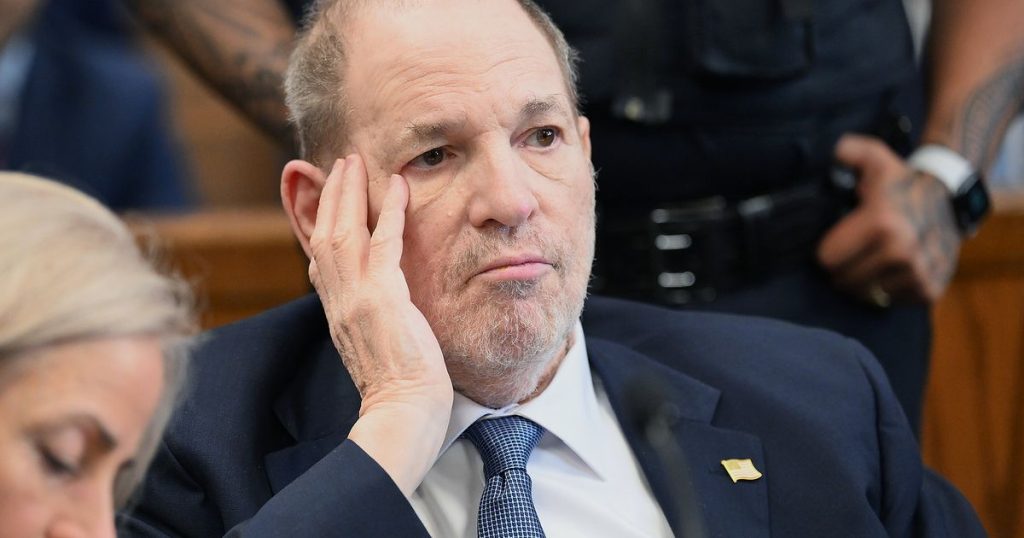Harvey Weinstein, the disgraced movie mogul, is currently being held in a private room in Bellevue Hospital’s Intensive Care Unit. Weinstein is kept away from other detainees and has access to his own phone, bathroom, and television, which is a perk few other city detainees receive. He spends his days watching TV and speaking with his attorney about his appeal. Weinstein was moved to the hospital following chest pain complaints after his 2020 rape conviction was overturned by an appeals court. He has been diagnosed with pneumonia and is dealing with other serious health conditions. Despite claims that he is capable of daily tasks, he remains in the ICU, which some feel is special treatment.
The Department of Correction’s struggles to properly treat detainees with complex medical needs have been highlighted in recent incidents. Most detainees are treated at medical clinics within the jail facilities on Rikers Island. The Board of Correction has cited missed medical visits as a contributing factor in deaths behind bars. A recent case involved the death of a Rikers detainee who was without a mattress for 18 hours and received limited recreation time before being found unresponsive in his cell. The detainee, Manuel Luna, was facing charges of stealing an e-bike and was not given methadone treatment several times prior to his death. Luna’s family has criticized the lack of humane treatment in jails and called for accountability in cases of negligence.
Weinstein’s treatment in Bellevue Hospital is not vastly different from that of other detainees, despite the perks he receives. He is only allowed to eat hospital food and must wear sweats issued by the jail. Visitors must also undergo screening and searching procedures before being allowed to meet him. Weinstein was previously held at Mohawk Correctional Facility before his 2020 rape conviction was overturned. New York’s highest court ruled that evidence not directly related to the charges was seen by jurors, leading to a retrial. Weinstein was convicted of another rape case in Los Angeles in 2022 and was sentenced to 16 years in prison.
The former Hollywood powerbroker is being watched by four correction officers from the department’s Emergency Service Unit, which some feel is excessive. The city’s Correctional Health Services, responsible for the medical care of incarcerated individuals, did not respond to inquiries about Weinstein’s extended stay in the ICU. Weinstein’s attorney has emphasized his client’s multiple health issues and the need for proper care. Former top officials in the jail system question the necessity of eschewing traditional observation methods for Weinstein’s case. The Department of Correction has been criticized for its handling of complex medical cases and a lack of proper treatment for detainees in need.
Most high-profile detainees are housed in the West Facility on Rikers Island, originally built to house people with contagious diseases. Inmates placed in this facility, like Allen Weisselberg, usually have their own cells for privacy and security reasons. The struggle to provide adequate medical care in the correctional system has been ongoing, with concerns about missed medical visits and deaths behind bars under Mayor Eric Adams’ administration. The Board of Correction has been critical of the lack of humane treatment and accountability in these cases. The death of Manuel Luna, a Rikers detainee, has sparked renewed calls for reform and better conditions within the jail system to prevent further tragedies.


